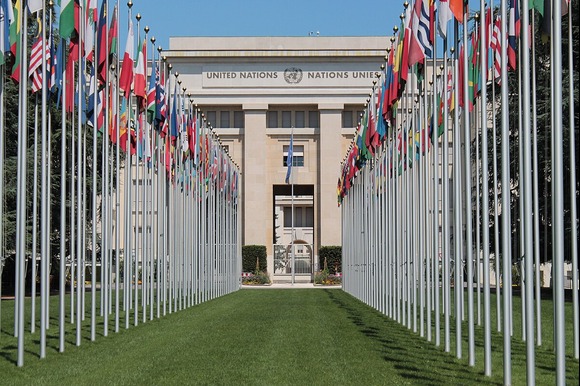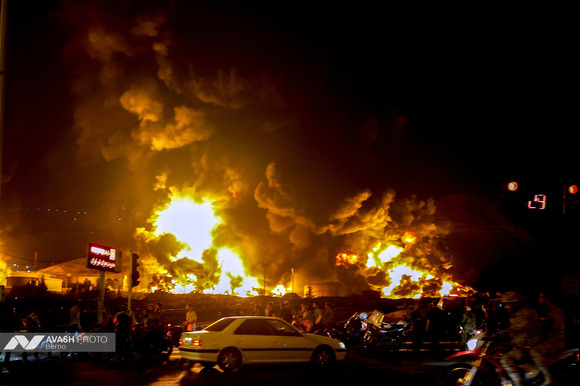
Buddhists protest for Rohingya
All of these abuses were reported in a report with testimonies from more than 200 people in that community by a group of investigators from the Office of the United Nations High Commissioner for Human Rights. The interviews were held at the border of the Asian country with Bangladesh. The head of the research, Linnea Arvidsson, was surprised by the high percentage of Rohingya affected by the outrage.

“We did not find any of the 204 people we interviewed who had not been raped. Either his house was burned or looted, or a member of his family disappeared, or he was killed. This situation is extremely rare,” said Arvidsson.
Among the atrocities committed include the knife-stabbing of an eight-month-old baby and those of two children aged 5 and 6, as well as that of a 5-year-old girl trying to prevent her mother’s rape. UN High Commissioner Zeid Ra’ad Al Hussein said that the cruelty to which these children were subjected was insufferable and stressed that the high level of violence contained in the report is unprecedented.
Zeid called on the international community to join in and urge Myanmar leaders to end this type of military operations. Following the release of the report, UNICEF issued a statement stating that the serious violations of children’s rights reflected in the study are totally unacceptable and should be investigated.
Burma denies visas to UN rapporteurs to investigate human rights violations against Rohingya:
Burma’s Deputy Foreign Minister Kyaw Tin has announced that the government has decided to deny the visa to all UN members who are going to carry out investigations in the country, a measure that has been communicated to the entire consular network.
Speaking to Parliament, Foreign Ministry ‘number two’ explained that Nobel Peace Prize winner and current de facto leader of Burma, Aung San Suu Kyi, has decided that the government should not coordinate with the Mission of the UN.
Last March, during the 34th session of the UN Human Rights Council, the agency decided to launch an emergency data collection mission to establish the facts and circumstances of the alleged violations of human rights. Humans committed by the security forces and the Burma Army.
Tin pointed out that the Burmese government has disregarded this resolution because it does not consider it to be “in line with what is currently happening on the ground.”
“We have ordered the embassies of Burma not to guarantee the visa to any member of the investigation mission, but this mission will be able to travel to neighboring countries and ask them what they want to know and submit their report to the UN,” he added.
The United Nations High Commissioner for Human Rights, Zeid Raad al-Hussein, has recently expressed concern about the situation in Burma over the special rapporteurs.
A similar situation has taken place in the Philippines, where the Government has been making it difficult for Agnes Callamard, Special Rapporteur on Extrajudicial Executions, to enter. Al Hussein himself has criticized the “defamation” and “hate campaigns” carried out against Callamard.
However, Bangladesh, a country bordering Burma and fled by thousands of Rohingya refugees pursued by Suu Kyi’s government, has already raised doubts about whether the country will allow the three experts forming the mission to enter.

Research Mission
In the first quarter of 2017, the Human Rights Council decided to urgently send an independent international fact-finding mission to “establish the facts and circumstances of the alleged recent violations of Human Rights by the Army and security forces and Abuses in Burma, especially in the state of Rajine.”
The members of the commission are charged with analyzing allegations of “arbitrary detention, torture and inhuman treatment, rape and other forms of sexual violence”, as well as “extrajudicial, summary or arbitrary killings, forced disappearances, forced displacement and illegal Properties, “the note explains.

The Council also requested the Government of Burma to cooperate fully with the members of the mission by making available the findings of the investigations carried out at the national level and allowing full access and restrictions to all areas and interlocutors.
The commission is to submit its first oral report to the Human Rights Council during its 36th session next September and the full report at the next session, scheduled for March 2018.
About 75,000 Rohingya fled from the northwestern state of Rajine to neighboring Bangladesh following an operation launched by security forces in October 2016 in response to attacks on border posts in which nine policemen were killed and was attributed to Rohingya insurgents.
Since then, both the UN and human rights organizations have denounced the abuses committed by the security forces against the Rohingya, pointing out that it could be crimes against humanity and even ethnic cleansing.



